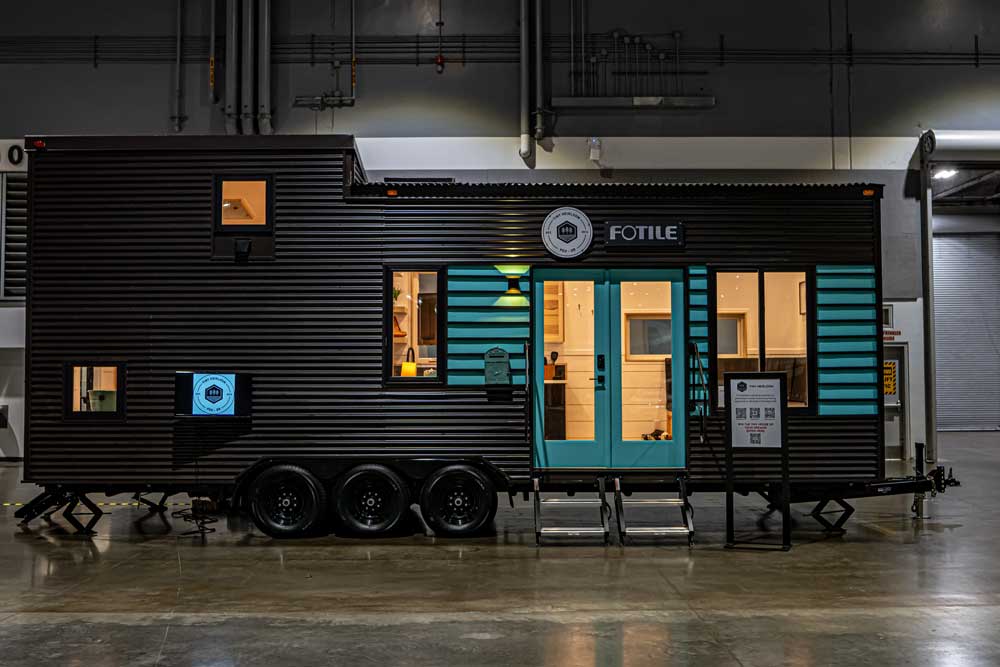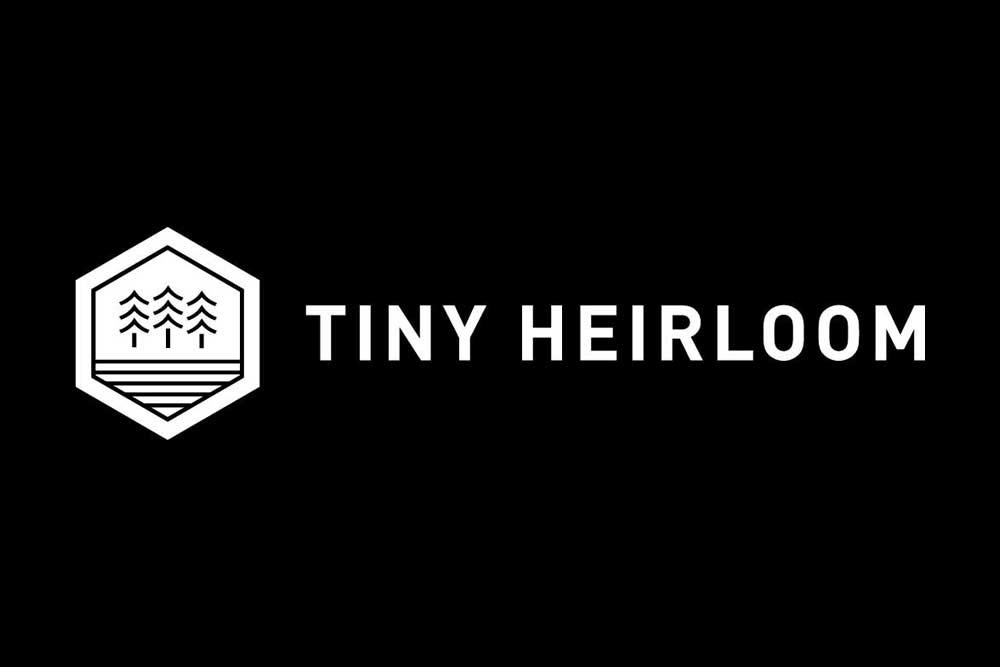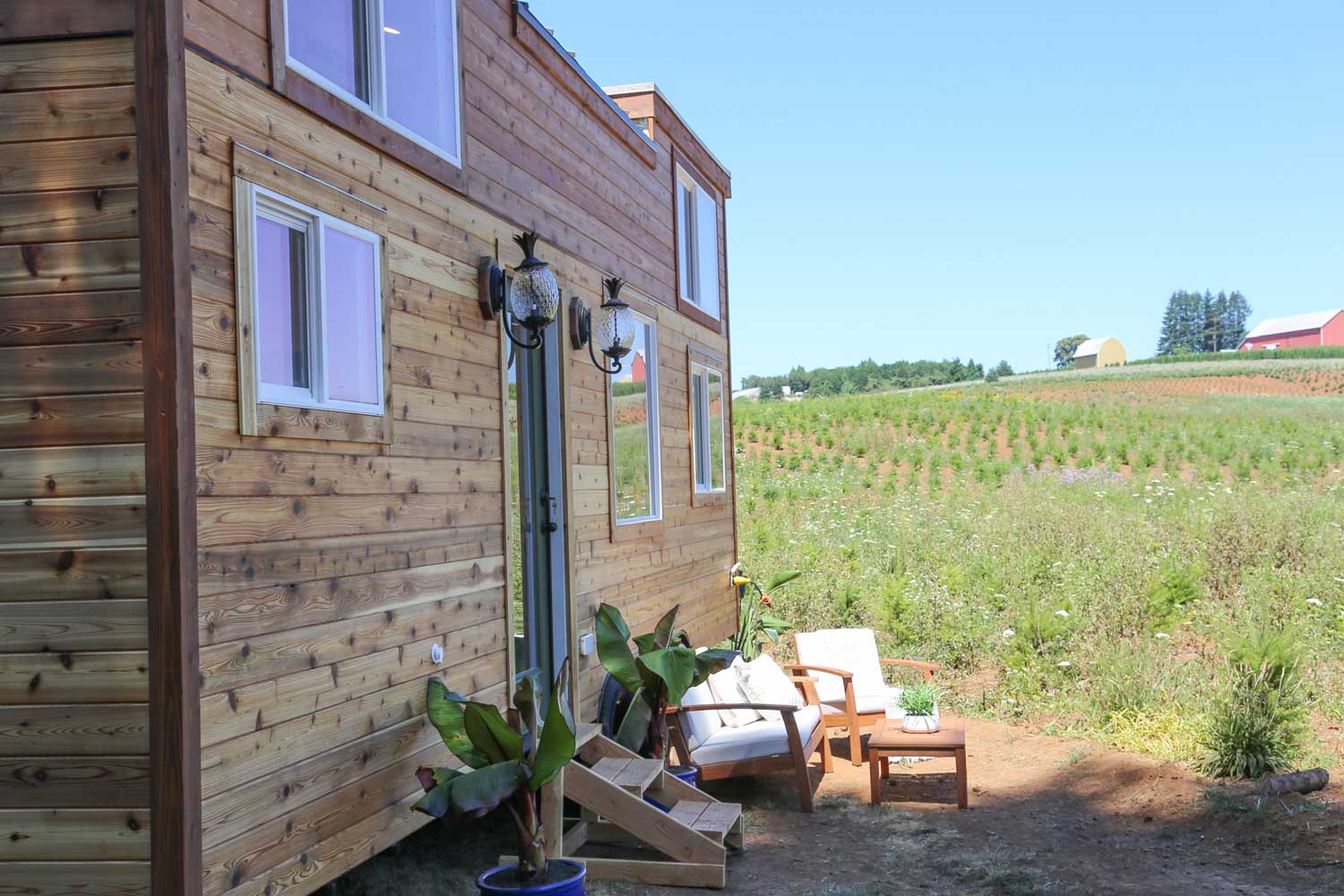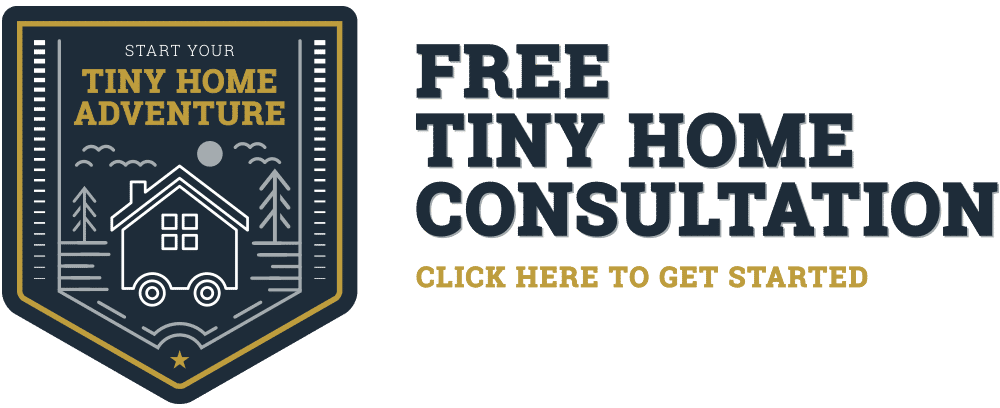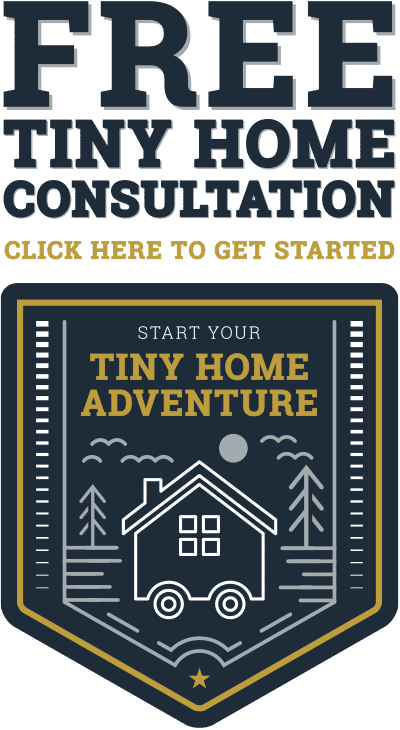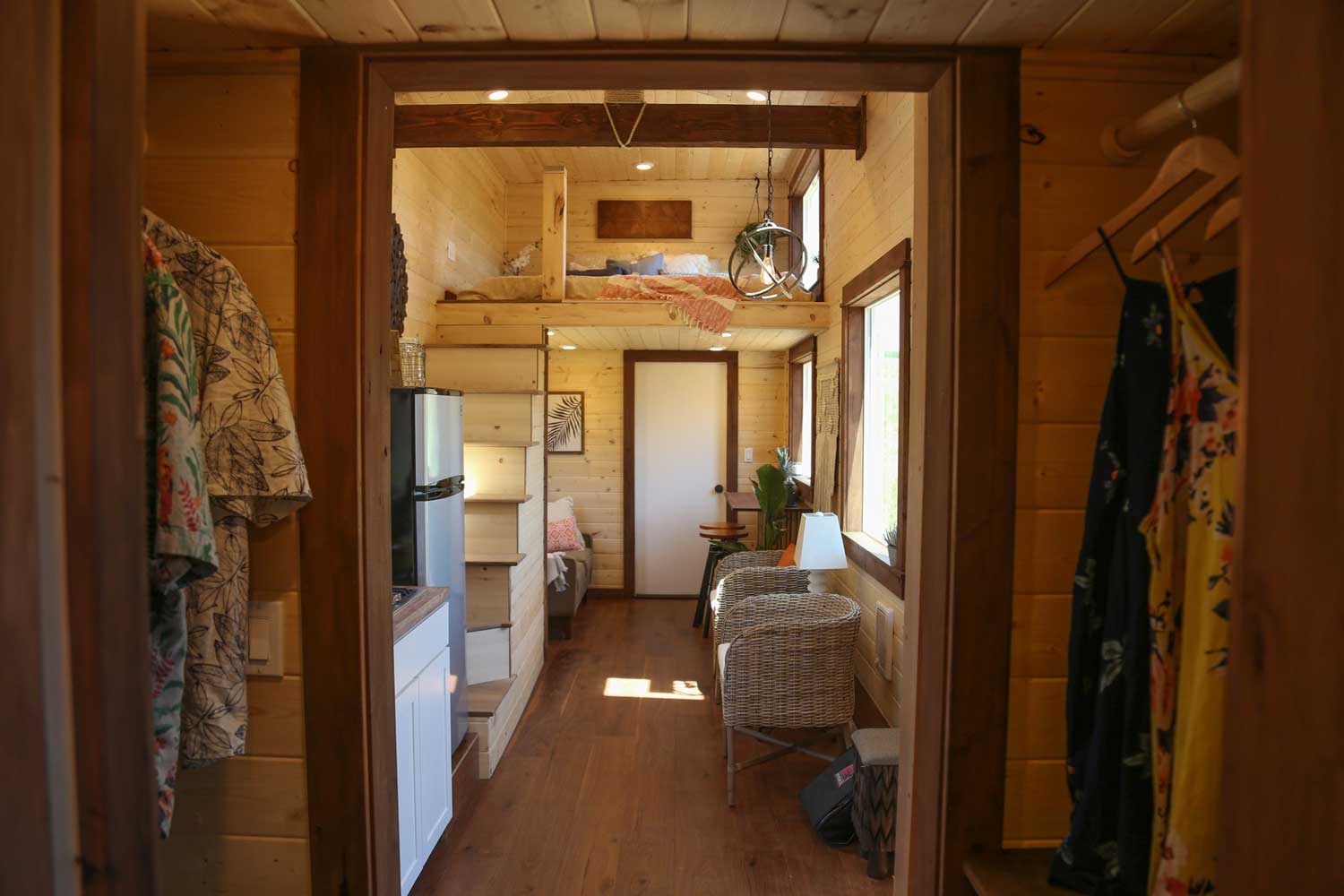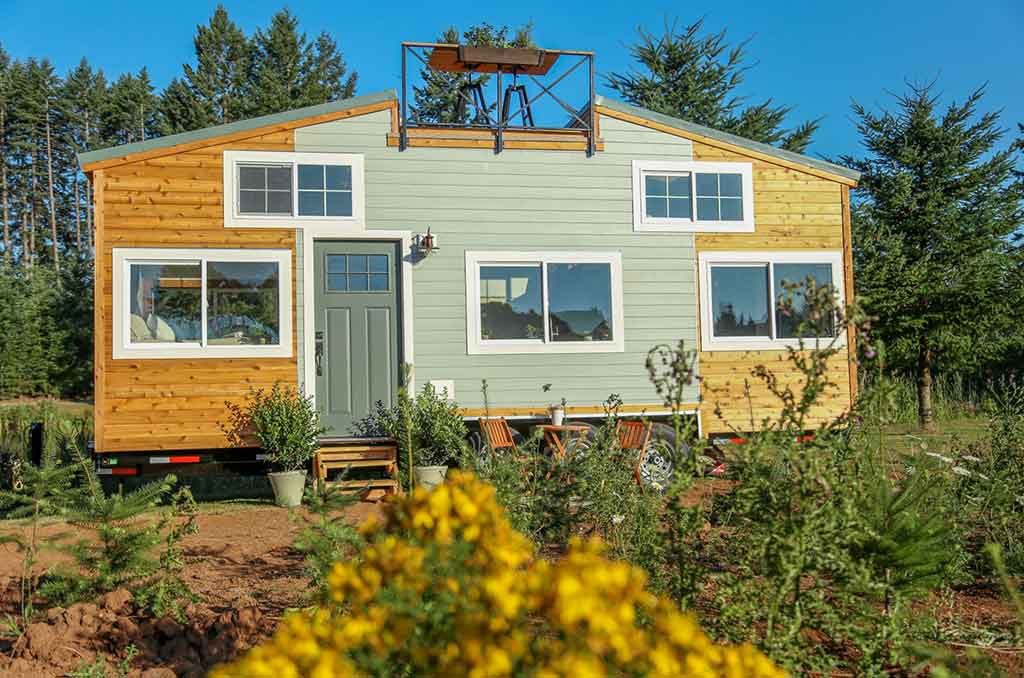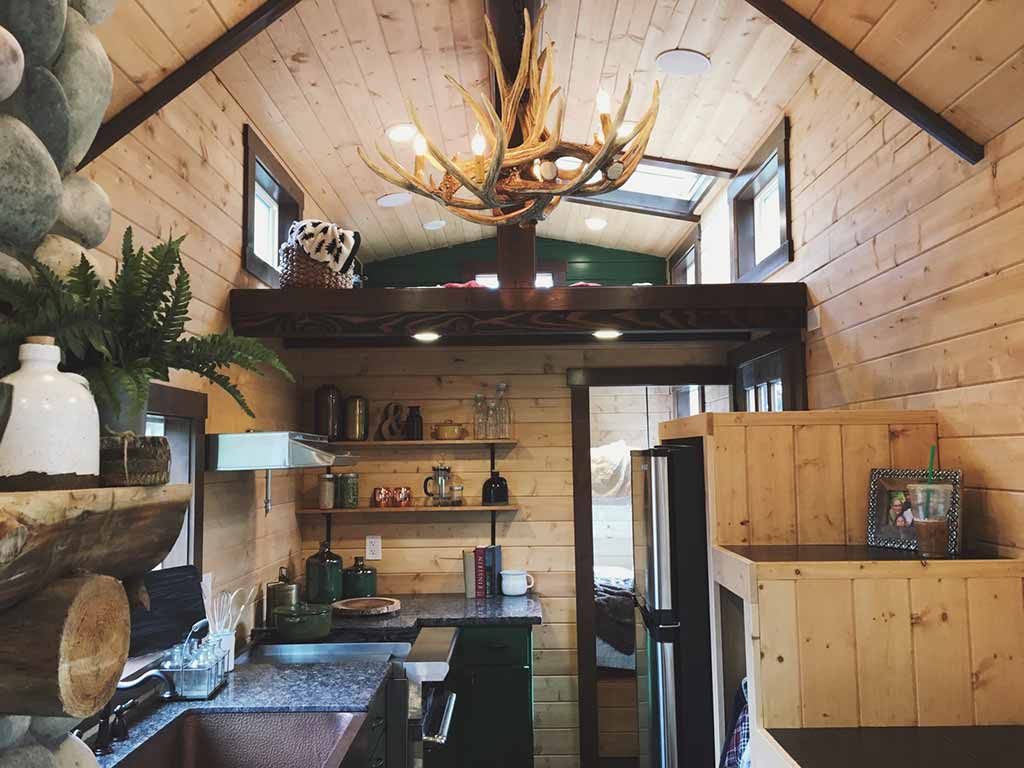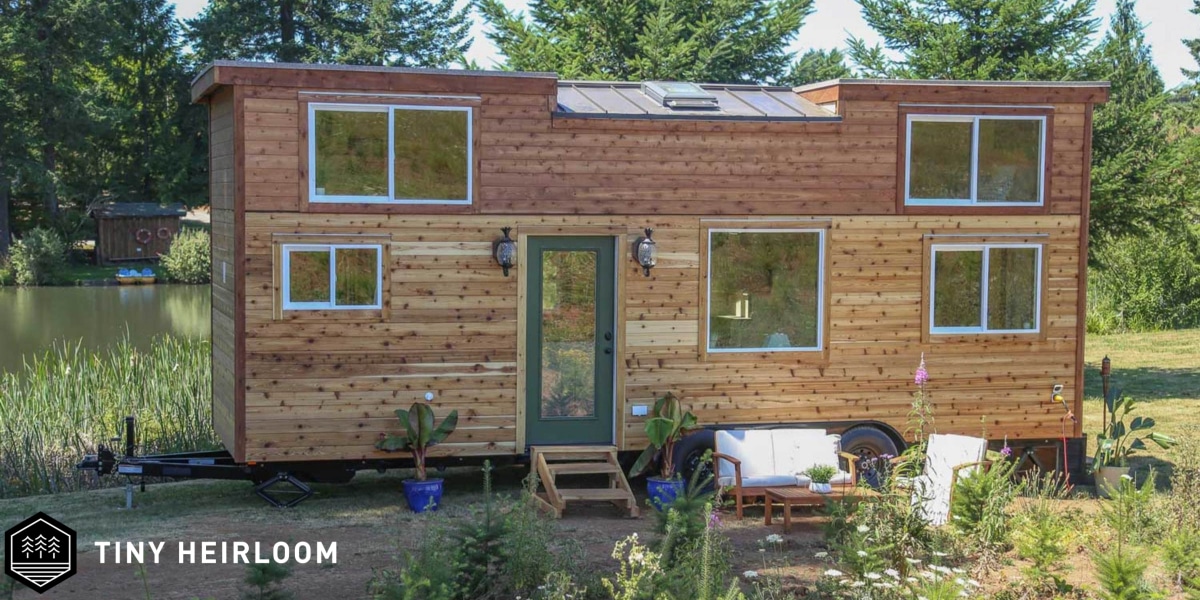
Going Rogue with an Off Grid Tiny House
When you think of “going off the grid,” you might picture a quick camping or hiking trip in the middle of the wilderness. In reality, many people choose to make the off grid way of life permanent.
It’s somewhat difficult to get an accurate number of people in the United States who are living off the grid, but in 2006, Home Power magazine estimated that more than 180,000 homes were supplying their own power with significant growth each year. An additional 27,000 homes were using solar and wind energy to offset their grid-connected life as well.
If you’re curious about off grid living, this article will help you develop a better understanding of what it takes and how to make this unique way of life a reality. Then, once you’re ready to make the transition to off grid living, our experienced team of tiny home builders can help design the perfect off grid home to meet all your needs!
Introduction to Off Grid Living
The term “off the grid” is defined as not requiring public utilities such as electricity, water, sewer, natural gas, heat, and other services. It also often entails living a minimalist lifestyle, reducing waste, and spending only on absolute necessities. To truly live off the grid you must get your electricity from renewable sources like wind, solar or geothermal power.
The two main reasons people have noted for transitioning to an off the grid lifestyle are financial, because of the money you can save on utilities, and also environmental, to lessen the impact their lives have on the environment. For example, the average American household uses over 8,900 kilowatt-hours of electricity and somewhere around 144,000 gallons of water each and every year. This number will be decreased when moving off the grid and the energy and water used will also be sourced on-site, limiting the overall environmental effects as well. With more financial freedom, studies show that people experience less stress and anxiety too!
Key Considerations for Living Off the Grid
To prepare yourself to live off the grid, we highly suggest you take classes and read books about farming, homesteading, and other skills you’ll need to achieve this dream. We also suggest keeping an eye out for real estate or an off-the-grid community that suits your purposes and think about the kind of home and lifestyle you want before making this big decision.
Some of the major things to consider when transitioning to off grid living are:
Location: When choosing a location for your off grid home, you’ll want to think about how remote you are prepared to be. Climate is another important factor to consider. We’ll explore this more in the sections below.
Shelter: Shelter is another obvious consideration. Below we’ll explore a few popular options, including off grid tiny homes and trailers.
Potable Water: Water is life! You will certainly need access to clean, drinkable water if you’re truly living off the grid. Many off grid homes or communities turn to rainwater collection systems or hand-dug wells.
Power/Fuel: Thanks to improvements in technology, there are many sustainable power solutions including solar, wind turbines, biodiesel generators, and micro-hydro systems, to name a few. By the year 2030, it is estimated that over half of all electrical connections will be off grid.
Food Sources: Do you plan to grow, gather, hunt, or fish for your own food? If so, you will need a good understanding of your local environment and the skills to make this way of life sustainable year-round.
Waste Disposal: If you’re interested in off grid living for sustainability or environmental reasons, be sure to think carefully about waste disposal. There also may be local regulations that apply here too, so be sure to do local research. Where permitted, composting toilets are a popular option.
Security: Be sure to think about local risks such as harsh weather conditions, wildlife, forest fires, and other security threats when choosing your location and building your off grid home.
As mentioned above, if you’re moving to a remote location and intend to live fully off the grid, you should prepare yourself, practice, and learn all the skills you might need to live safely and comfortably. These may include gardening, first aid, basic survival skills, carpentry, and fishing, just to name a few.
Daily Life with Off Grid Homes and Cabins
As you can imagine, your daily life living off the grid might be quite different than you’re used to. You will probably need to consider your daily chores taking longer than usual. For example, you’ll probably need to perform routine checks on your electricity and water supply. Though these chores might not make your life easier, they certainly will save you money and give you the satisfaction of sustainable and independent living.
Off grid living often means a more active and healthy lifestyle too! You’re likely to spend more time outdoors, walking, working with your hands, and eating locally grown and organic foods — all of which are said to improve the overall quality of your life.
If you choose to live off the grid in a tiny home, the financial, emotional, mental, and physical lifestyle benefits of tiny living are twofold.
Buying an Off Grid Tiny House
After deciding to make the leap to off grid living, you’ll need to do a fair amount of research to determine where you’ll be living off the land! Due to zoning issues and increased laws making off-grid living more difficult, most people look to rural areas or at least semi-rural areas for land. When searching for a location, here are a few things to consider:
- How far are you from emergency services if there is an emergency?
- What are the potential dangers of the land? Are there natural disasters or dangerous wildlife to be aware of?
- What are the zoning issues and building laws in the area?
- Are there enough resources available in the area, especially water?
- What is the climate like year-round?
- What local regulations might apply (such as waste management)?
Once you’re confident in an area to live in, reach out to a real estate agent or search for off-grid communities. A real estate agent can help you find land then, start exploring your tiny house options to put on your land or in your new community!
Off Grid Communities
Contrary to what you might think, going off the grid doesn’t mean you have to live an isolated life. In fact, there are many off the grid communities across the United States (and around the world) where you can pursue a sustainable way of living within a strong community atmosphere.
Oregon is home to many off grid communities, including Three Rivers Recreation Area, a community with nearly 4,000 acres of land off of Lake Billy Chinook in Central Oregon, and Breitenbush Hot Springs, an off the grid resort where around 85 staff live and work at a sustainable worker-owned cooperative.
Have you heard the term Earthship? An “Earthship” is a shelter made of earth that is made of both natural and upcycled materials, like earth-packed tires. There are many of these off grid Earthship communities scattered around the United States, but the largest and most well-known is Greater World Earthship Community near Taos, New Mexico.
These are just some of the many interesting and unique off the grid communities where you can pursue an alternative, more sustainable way of living alongside like-minded people.
More Options: Off Grid Trailers
For many, a tiny house on wheels or tiny house trailer is the perfect solution for off grid living. If sustainability and minimalism are important to you, going with a smaller home just makes sense.
Off the grid tiny house trailers typically include self-sufficiency features such as solar panels, rainwater collection systems, composting toilets, and the like. A tiny house trailer with these features will be much easier to travel with and park, and will provide you with tons of flexibility! Off the grid tiny house trailers are a great option for those who want to live in more rural, isolated areas where it would be difficult (and potentially harmful to the environment) to build a traditional home.
With a custom off grid tiny house, you can plan out and design every single detail of your home for off the grid living, with your specific location and environment in mind. For example, if you’ll be in a warm climate, you can design a tiny home for hybrid indoor/outdoor living.
Finishing Touches: Off Grid Appliances
When tiny homes are designed to meet off grid necessities, incredible innovation happens. Below are a few great features and appliances that will make the transition to off the grid tiny living more smooth and convenient:
Solar System: For an off the grid solar system, you’ll probably need an inverter with a battery and charge controller in addition to the panels themselves so that you can charge your battery during the day and use that electricity in the dark.
Solar Oven: Solar ovens use zero electricity. Even if you live in a less sunny climate, many have sun enhancing reflectors to keep the stove running.
Composting Toilet: Although a composting toilet might intimidate you at first, it’s a great way to take care of your waste when living off grid. A composting toilet that keeps solid and liquid waste separate will help to minimize odors. Diluting the tank with water will also help keep odors to a minimum.
Propane Refrigerator: A propane refrigerator will help minimize your solar power needs. Many appliances designed for RVs work perfectly for off grid tiny homes.
Rainwater Collection System: Depending on the size of your tiny home and water consumption, a rainwater collector may or may not be able to provide enough water for your household year-round. Obviously, if you live somewhere with higher rainfall, you’ll be able to collect more.
Low Flow Showerhead: If you’re worried about water consumption, solutions like low flow showerheads can help make your home more water-efficient.
Propane Tankless Water Heater: These are a great option for off grid tiny homes because they require very little electricity. Top-of-the-line heaters can be expensive, but might be a worthy investment if you like your showers hot!
Wood Stove: Wood burning stoves take up more space and weigh more than propane heating options, but they require no additional power to run. If you have access to ample wood at your off-grid location, they’re a great option and can save you money!
Camp Stove: If you like cooking outdoors, a camp stove is another great appliance to invest in.
Off Grid Homes for Sale
If you’re ready to purchase an off grid tiny home, you have several ways to go about it. First, and perhaps most ideally, you can design a custom off the grid tiny home from the ground up with the exact setup and appliances you’ll need. For a more budget-friendly option, you can either purchase a prefab off grid tiny home designed by professionals or a preowned off grid tiny home for something more unique.
We love helping make people’s off the grid dreams a reality. That’s why we’ve made it easy to have a solar set up incorporated (and many other off grid features) into your tiny house to power it with clean renewable energy. On top of that, all our tiny homes are also built using 100% renewable energy.
To get started with your off the grid adventure, reach out to people who are currently living off the grid, read as many resources as you can including online blogs and when you’re ready to start designing and building your off the grid tiny home, fill out a free consultation form here!
